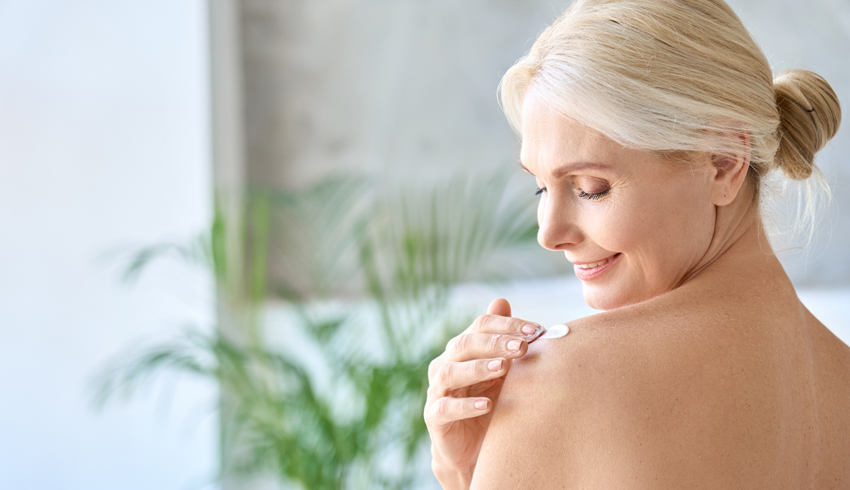Treating Post-Acne Dark Spots on Butt: A Beautician's Guide
As a beautician, youre likely accustomed to clients seeking advice on all sorts of skincare concerns. One common issue is treating post-acne dark spots on the butt, a topic that requires subtle yet effective strategies to restore smooth and even skin. The initial step in this transformative journey involves understanding the causes behind these pesky marks. Are you ready to uncover expert methods that elevate your client's outcomes?

Understanding Post-Acne Dark Spots
First, lets address the root cause: post-acne dark spots occur due to inflammation. When the skin experiences a breakout, the bodys healing response can sometimes trigger excess melanin production, leading to hyperpigmentation. This kind of dark spot, known as Post-Inflammatory Hyperpigmentation (PIH), often lingers even after the acne itself has subsided.
Why the Butt?
The skin on the buttocks is prone to acne due to constant friction from clothing and lack of airflow. Moreover, sweat and sebum can accumulate, encouraging bacterial growth and subsequent breakouts. Unlike facial skin, buttocks skin is thicker and responds differently to treatment. Understanding these dynamics is crucial for developing effective regimes.
Exfoliation: The First Step
Exfoliation plays a pivotal role in treating post-acne dark spots on the butt. By removing dead skin cells, it encourages cell turnover and helps to fade dark spots over time. A gentle scrub containing natural ingredients like sugar or oatmeal can help without irritating sensitive skin.
Chemical Exfoliants
Incorporating chemical exfoliants like AHAs (Alpha Hydroxy Acids) and BHAs (Beta Hydroxy Acids) can significantly aid in reducing pigmentation. AHAs, such as glycolic acid, exfoliate the skin's surface, whereas BHAs like salicylic acid penetrate deeper, combating acne at its source.
Moisturize Regularly
Keeping the skin moisturized is essential. Dermatologist Dr. Julia Jowett explains how a hydrating routine ensures that the skin doesnt overcompensate by producing excess oil. Natural ingredients, such as aloe vera and shea butter, can be particularly supportive in maintaining a balanced moisture barrier.
Check out these insights on body washes for dry skin to keep skin hydrated without clogging pores.
Topical Treatments
Topical treatments featuring lightening agents like niacinamide, vitamin C, and licorice root extract can be effective. These ingredients not only fade dark spots but also provide anti-inflammatory benefits.
In addition, consider the power of retinoids. Renowned for their ability to accelerate cellular turnover, retinoids can reduce the prominence of post-inflammatory marks significantly over time. However, caution must be exercised, as retinoids can be irritating for some skin types.
Sun Protection
Sun exposure can exacerbate post-inflammatory hyperpigmentation. It is crucial to advise clients to use a broad-spectrum SPF on their buttocks, even if it remains covered by clothing during the day.
When to Seek Professional Help
If over-the-counter treatments fail to deliver, professional guidance might be necessary. Procedures like chemical peels and laser treatments are available options that can be discussed with clients for more stubborn cases.
For more advanced treatments, refer clients to resources like this helpful acne clearing guide for those dealing with persistent skin challenges.
Preventive Measures
Prevention is always better than cure. Encourage clients to wear loose-fitting, breathable fabrics that minimize skin irritation and to maintain a thorough cleansing routine using a gentle body wash.
For additional tips on managing acne, explore this informative article on preventing body acne.

FAQ
How long does it take for post-acne dark spots to fade?
Generally, post-acne dark spots can take several months to fade. However, the precise timeline depends on factors like skin type, treatment used, and sun exposure.
Can diet influence post-acne dark spots?
While diet doesn't directly cause dark spots, a balanced diet rich in antioxidants and low in sugar or dairy may assist overall skin health.
Are natural treatments effective?
Yes, many natural treatments, such as those containing niacinamide and vitamin C, can be effective in reducing dark spots. However, results vary based on individual skin responses.
This article contains affiliate links. We may earn a commission at no extra cost to you.

